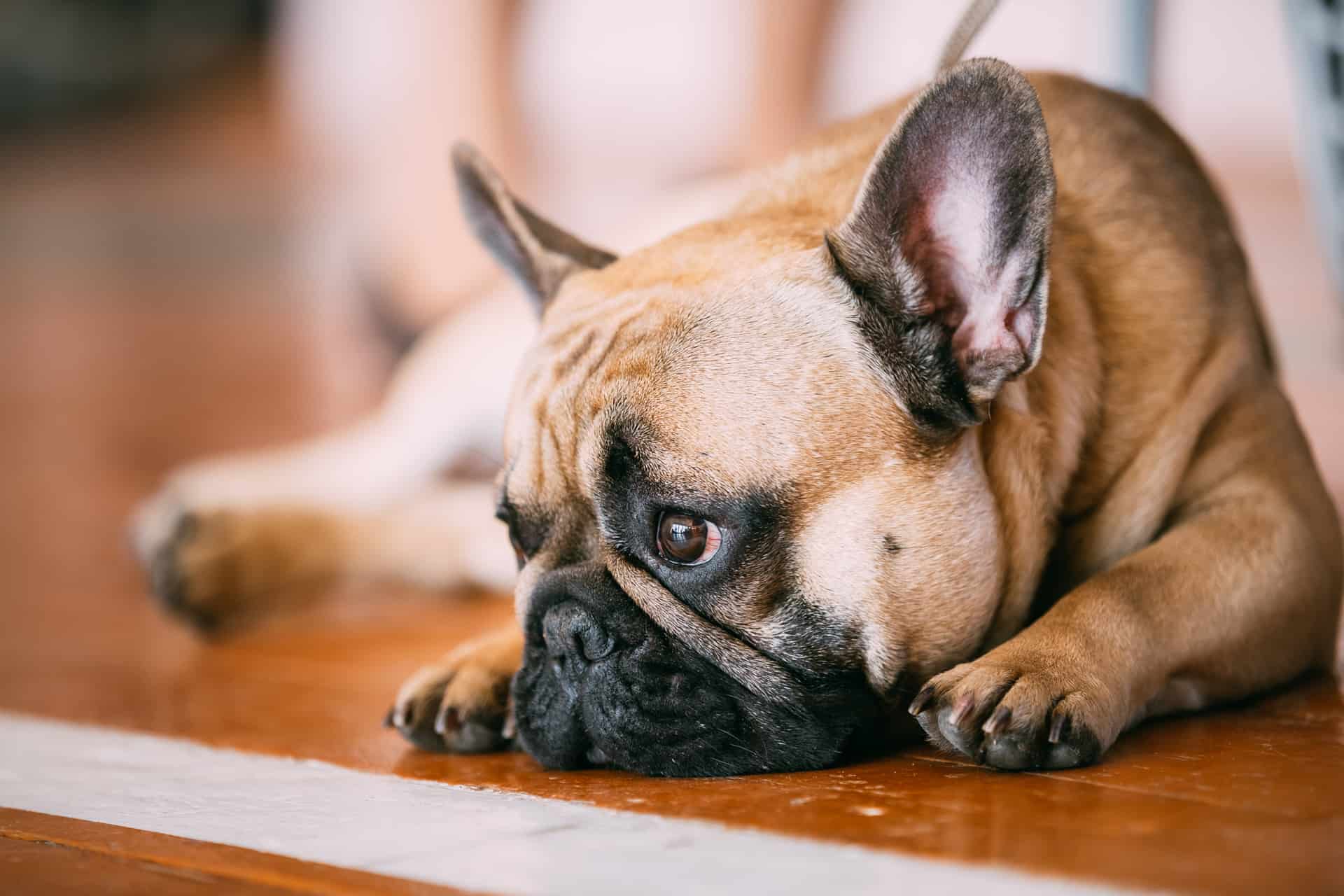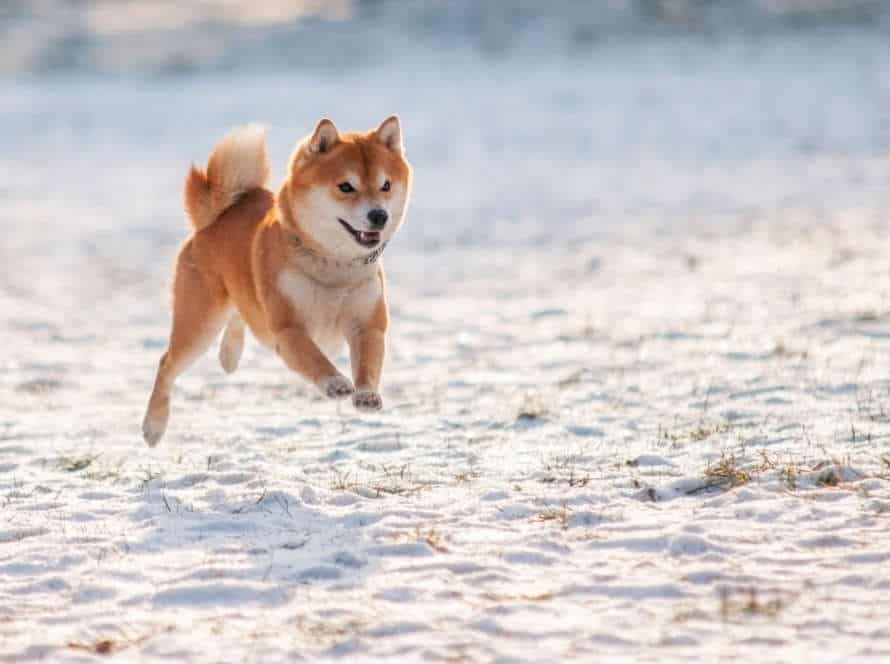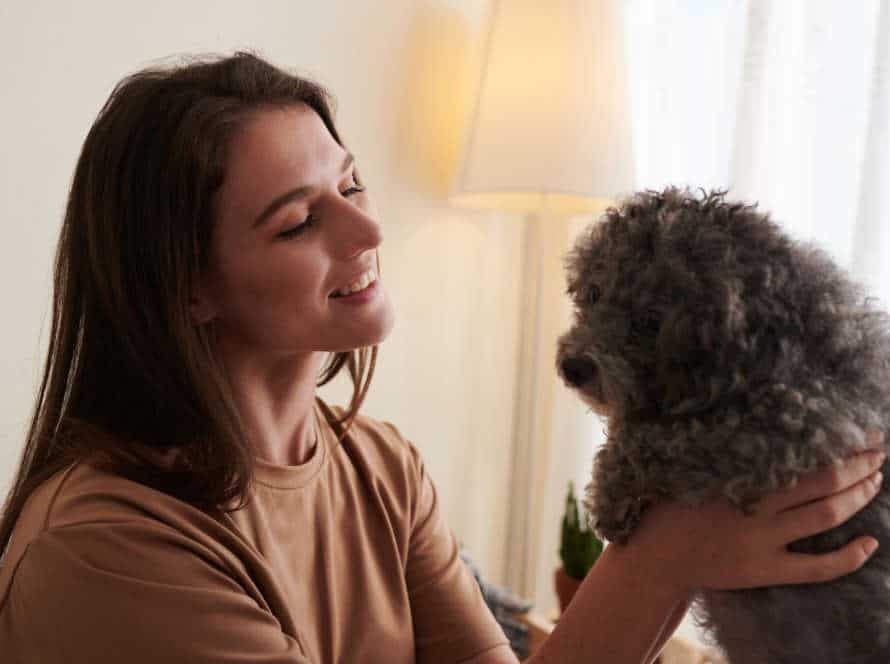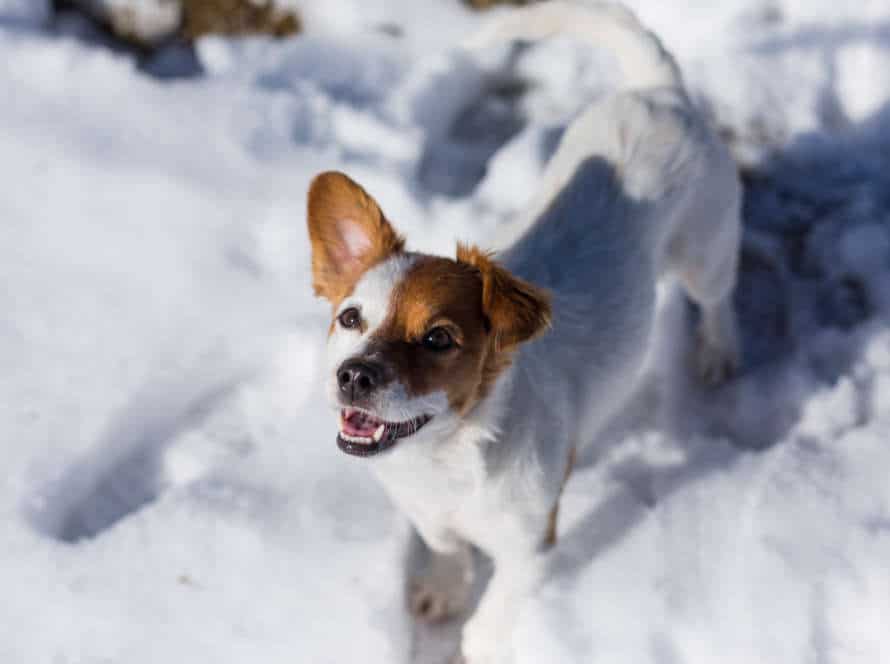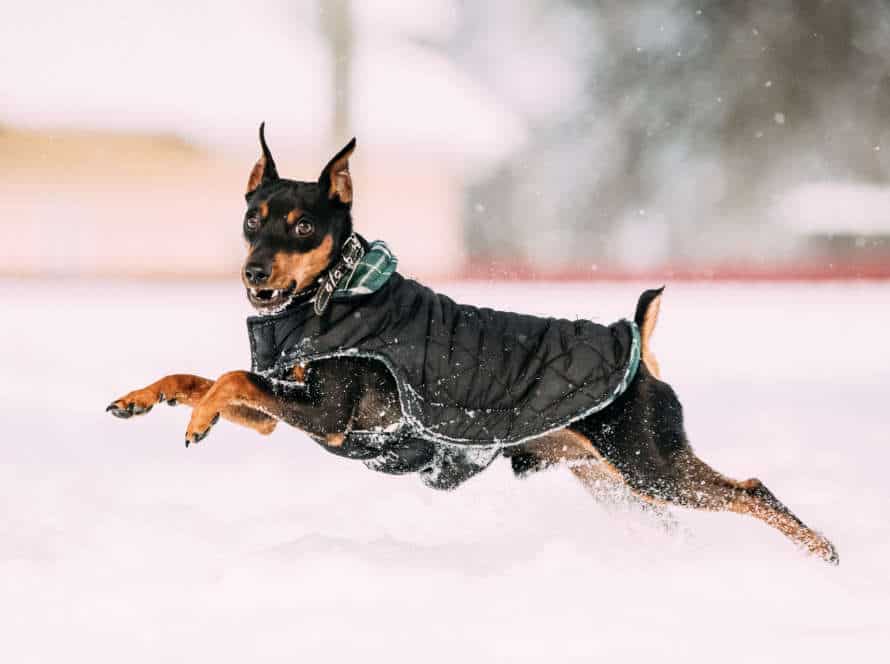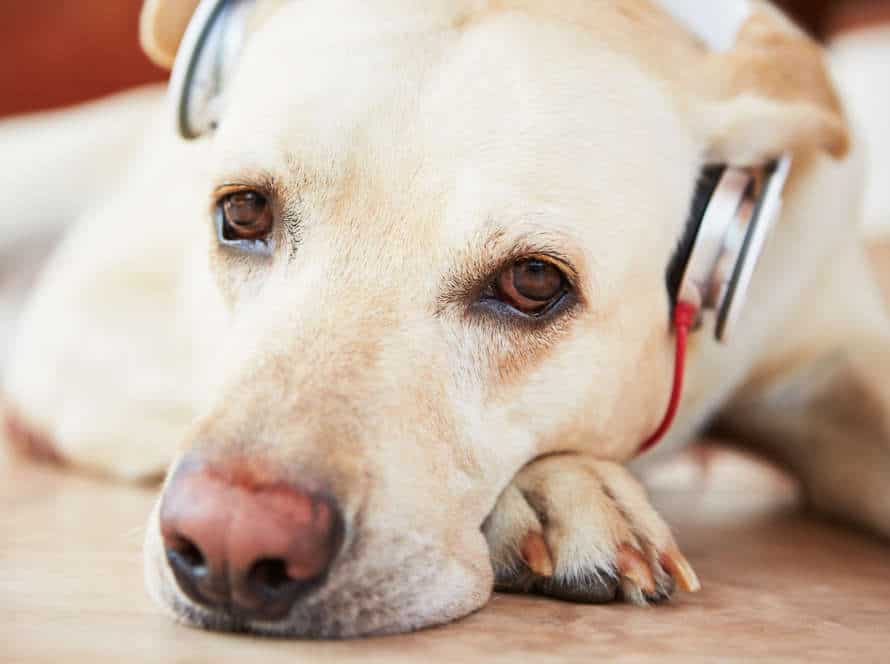Understanding Separation Anxiety in Puppies
Puppies can have separation anxiety. Knowing the signs is key for prevention. To create a secure environment for your pet, exercise them, give them enrichment, and socialize them. Why does separation anxiety happen in puppies? Let’s find out how to stop it.
What Separation Anxiety is
Separation anxiety is a condition where dogs feel distress, fear and anxiety when away from their owners for a long time. Symptoms consist of: excessive barking, destructive behavior, house soiling and escape attempts when alone.
It’s common in puppies, especially those that were adopted or had a traumatic experience in the past. To prevent separation anxiety in puppyhood, introduce your pup to alone time slowly and don’t reward clingy behavior.
Ways to prevent it include crate training, leaving a toy or treat, and creating a safe area when you’re not home. Desensitize your pup to departure cues, like putting on shoes or getting keys, by doing it frequently without actually departing.
Signs of Separation Anxiety in Puppies
Puppies have loving personalities, but they can experience separation anxiety which can make them and their owners distressed. Here are some signs to look out for:
- Excessive barking and howling when left alone.
- Chewing on doors, walls, or furniture.
- Attempting to escape or scratching at the doors and windows.
- Loss of appetite or overeating.
- Constantly seeking attention from their owners.
Pro tip: If you spot any of these behaviors, try gradually making your puppy used to being alone for short periods before leaving them alone for longer. Giving them toys, puzzles, or treat-dispensing gadgets can help keep them entertained while you’re away. Patience and consistency are essential to prevent or reduce separation anxiety in puppies.
The Consequences of Untreated Separation Anxiety
Untreated separation anxiety in puppies can cause a lot of problems. These include:
- Destructive Behaviors: Chewing furniture, shoes, or other home items.
- Excessive Barking: When left alone.
- House Soiling: Having accidents.
- Aggression: Towards people or other pets.
It’s important to prevent and treat puppy separation anxiety. Training, making a safe and comfy environment, and slowly getting your pup used to time alone can all help.
Prevention Techniques for Separation Anxiety in Puppies
Puppyhood is crucial. Pups need to trust their owners and get used to their new world. Separation anxiety can be a big problem, so it’s essential to stop it from happening. In this article, let’s discuss techniques to help puppies act positively and learn how to manage alone time.
Slowly Introduce Alone Time
Separation anxiety is a common problem in puppies but can be prevented. Here are some tips:
- Begin by leaving your pup alone for a few minutes, and slowly increase the time.
- Give your pup a safe space like a crate or playpen.
- Stick to a consistent routine for feeding, exercise, and alone time.
- Reward your pup with treats and praise when they stay calm while alone.
By following these techniques, you can prevent separation anxiety and create a happy bond with your furry friend.
Make Your Departure and Arrival Drama-Free
Separation anxiety in puppies is often a problem. But, with a few prevention tips, we can make coming and going drama-free. Here’s how:
- Do gradual separations. Start with leaving the pup for only a few minutes, and gradually make it longer.
- Give them a safe space. Have a special area with their bed, toys, and water. This helps them feel comfy and secure.
- Use positive associations. Give the pup a treat or toy when you leave, and don’t fuss over them when you return. This creates good associations with you coming and going.
- Foster independence. Play crate games with your puppy, and build up the time they spend in the crate until they can be alone for a few hours.
By using these tips, separation anxiety in puppies can be prevented. This makes leaving and arriving a hassle-free process.
Use Dog Toys and Treats to Keep Your Puppy Entertained
Using toys and treats can be a great way to keep your pup entertained and ward off separation anxiety. Here’re some tips to do that:
- Provide your pup with a selection of safe and appropriate chew toys.
- Change the toys every few days to keep your pup engaged.
- Give them puzzle toys or toys that dispense treats for mental stimulation and distraction.
- Before you leave, give your pup a treat or two – this creates positive associations with your departure.
- Avoid toys that mimic human interaction, like stuffed animals or blankets – these may worsen separation anxiety.
- Pro Tip: Don’t forget, toys and treats are not a cure-all for separation anxiety. If your pup is struggling with it, get professional guidance from a trainer or behaviorist, to address the root cause.
Training Methods to Prevent Separation Anxiety in Puppies
Stop separation anxiety early! Training your pup to like being alone is the best way to avoid it getting worse.
Reward good behaviors, desensitize them and use counter conditioning to make them feel comfortable. Let’s find out more about each of these methods.
Crate Training
Crate training is a great way to reduce separation anxiety in puppies. Here’s how to do it:
- Choose a crate that’s big enough for the pup to stand, turn and lie down easily.
- Introduce the pup to the crate by increasing the time spent inside.
- Positive reinforcement like treats and toys will make them like the crate better.
- Never use the crate as punishment – this can worsen anxiety.
- Always take your pup outside to do their business first.
- Increase the time they’re alone in the crate gradually.
Pro Tip: Every pup is different so be patient and consistent. That’ll help prevent separation anxiety.
Desensitization to Alone Time
Desensitization to being alone is a must for puppies who need to prevent separation anxiety.
To do this:
- Start off with short periods of leaving your pup alone.
- Increase the time as they get used to it.
- Positive reinforcement with treats and praise helps.
- Give your pup toys and comfort items when you’re away.
- When coming and going, don’t make a fuss.
- Be consistent and practice leaving alone every day.
- If distress signs show, like barking or destructive behavior, start again with shorter times.
- Be patient, consistent and use positive reinforcement to prevent puppy separation anxiety.
Counterconditioning for Separation Anxiety
Counterconditioning is a great way to prevent separation anxiety in puppies. It works by changing how your pup feels about the things that make them anxious when you leave.
Here’s what to do:
- Introduce your puppy to the things that happen when you leave, like picking up your keys or putting on a coat. Do this without leaving the house.
- Each time, pair the activity with something positive, like a treat or a game. Do this a few times a day.
- Then, gradually increase the time you’re away. Start with only a few minutes, then build up to longer periods.
- When you return, stay calm and don’t make a big deal out of it. This will help your pup understand that being alone isn’t a stressful event.
With patience and consistency, counterconditioning can help your pup become more confident and independent.
Long-Term Management of Separation Anxiety in Puppies
Separation anxiety can cause worry for both puppies and pet owners. During puppyhood, it is important to teach the pup good habits and help them get over any anxiety caused by being away from their owners. Here, we will look at effective methods and strategies to assist the puppy in managing separation anxiety in the long-term.
Exercise and Training Schedules
Exercise:
Exercise and training can assist in preventing separation anxiety in puppies. Give your puppy enough physical activity to tire them out and reduce stress. Go for brisk walks, runs and include play sessions.
Crate Training:
Show your puppy their crate is a safe and comforting place. Practice in short sessions, then gradually increase the duration.
Desensitization:
Gradually get your puppy accustomed to being alone. Start with a few minutes and increase the duration slowly.
Positive Reinforcement:
Use positive reinforcement techniques, such as rewarding good behaviour and ignoring bad behaviour, to help your pup stay calm when alone.
Remember:
Consistency is essential when preventing separation anxiety. Create a daily routine for your puppy and stick to it.
The Importance of Consistency
Consistency = key for preventing and managing long-term puppy separation anxiety. Why? Puppies need routine and structure. Changes to their schedule or environment = stressful and confusing.
Establish routine for feeding, exercise, and alone time. This helps puppies feel secure when you’re gone. Consistent rewards for good behaviour, instead of punishment-based training, builds trust.
Pro Tip: Crate train your puppy. Use positive reinforcement and gradually increase alone time. This helps them feel comfortable and relaxed.
Enlisting Professional Help for Severe Cases
Puppies can suffer from separation anxiety, but it can be prevented with the right training and management. Gradually get your pup used to being alone. Give them toys and treats, plus water and a comfortable bed.
Severe cases need professional help. A professional trainer/behaviorist will create a plan tailored to your pup. This may include behavior modification, medication, and ongoing support. Patience, consistency, and pro help are needed for severe cases.
Start training and managing during puppyhood to prevent separation anxiety.
Frequently Asked Questions
Q: What is separation anxiety in puppies?
A: Separation anxiety is a behavioral disorder that occurs when a puppy becomes overly anxious or stressed when separated from their owner or home environment.
Q: What are the signs of separation anxiety in puppies?
A: Common signs of separation anxiety in puppies include excessive barking or whining, destructiveness, pacing, panting, and attempting to escape from their crate or confinement area.
Q: How can I prevent separation anxiety in my puppy?
A: To prevent separation anxiety in your puppy, it’s essential to gradually acclimate them to being alone for short periods, provide plenty of exercise and mental stimulation, and avoid making a big fuss when leaving or returning home.
Q: Should I crate my puppy to prevent separation anxiety?
A: Crating your puppy is not a guarantee to prevent separation anxiety, but it can help create a safe and secure environment for them. The key is to make sure your puppy is properly trained to enjoy and feel comfortable in their crate.
Q: Can medication help with separation anxiety in puppies?
A: In some cases, medication may be recommended to help manage separation anxiety in puppies. However, it’s essential to consult with your veterinarian and consider behavior modification training first.
Q: How long does it take to prevent separation anxiety in puppies?
A: The time it takes to prevent separation anxiety in puppies varies depending on the individual puppy and their temperament. Consistency and patience with training and desensitization techniques are key to successful prevention.

